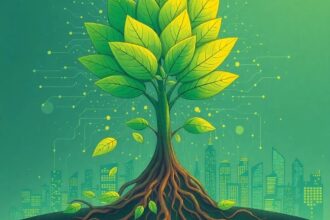Explores sustainable eating practices, emphasizing local produce and reducing food waste, highlighting expert opinions and real-life environmental impact data.
Discover how sustainable eating can significantly contribute to environmental conservation while benefiting personal health.
The Importance of Sustainable Eating
Sustainable eating is not just a trend; it’s a necessity for protecting our planet. According to a report by the World Resources Institute, shifting towards more sustainable diets could reduce agricultural land use by up to 30%. Sustainable eating involves choosing foods that benefit our health and the environment, making it a win-win.
Local and Seasonal Produce
Incorporating local and seasonal produce into your diet is a key aspect of sustainable eating. Consuming locally grown foods not only supports local farmers but also reduces the carbon footprint associated with transporting food across long distances. As highlighted by the Environmental Working Group, eating seasonal foods can reduce greenhouse gas emissions by more than 15%. Buying from local markets ensures fresh produce with fewer preservatives.
Reducing Food Waste
An alarming study by the USDA found that about 30-40% of the food supply in the U.S. goes to waste. Reducing food waste is crucial for sustainability. The Natural Resources Defense Council suggests planning meals, properly storing leftovers, and composting to minimize waste. By being mindful of our consumption habits, we contribute to significant environmental conservation.
The Role of Consumer Behavior
Changes in consumer behavior are pivotal in driving the shift towards sustainable eating. According to a survey by the International Food Information Council, 60% of consumers are willing to change their diets to become more sustainable. Influential environmental organizations like Greenpeace advocate for policies and practices that educate consumers on making better food choices.
Expert Opinions
Dr. Jessica Fanzo from the Johns Hopkins Berman Institute emphasizes, “Sustainable eating is about aligning dietary guidance with food system sustainability. It involves a holistic view on how our food choices impact the world.” The sentiment is echoed in various studies highlighting the role of individual action in broader attempts to conserve environmental resources.
Sustainable eating is a powerful tool for individuals to contribute to a healthier planet. By incorporating local and seasonal produce, reducing food waste, and making informed choices, we pave the way for a sustainable future.




